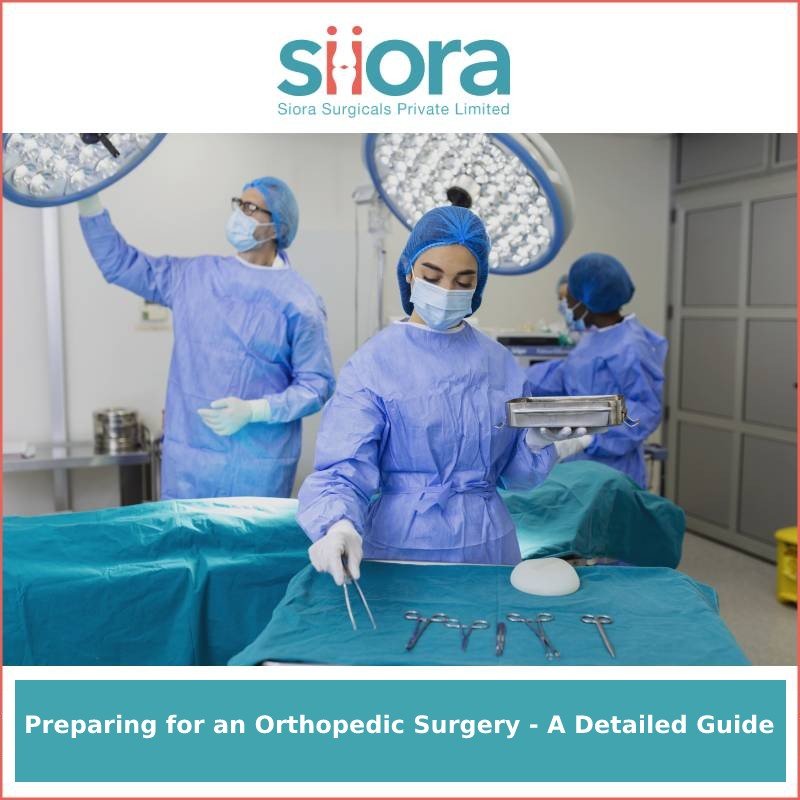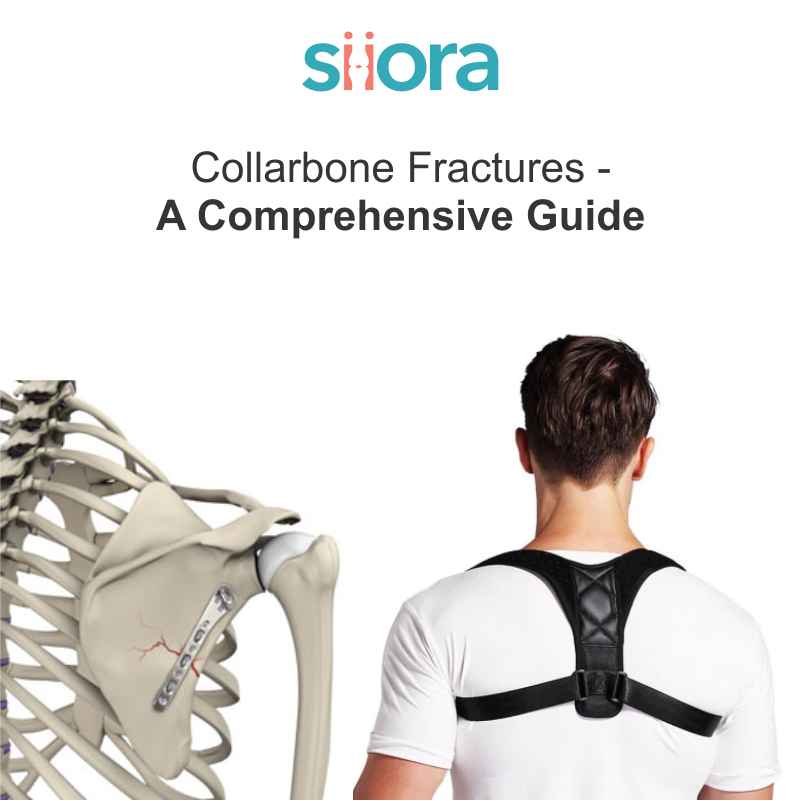Surgeries are not easy, neither for the patient nor the surgeon. When it comes to orthopedic surgery, knowing how to prepare for orthopedic surgery is important. This is because you should know the dos and don’ts of the surgery. We’re here to discuss the same and help you prepare for a successful orthopedic surgery.
How to Prepare for Orthopedic Surgery?
Doing successful orthopedic surgery requires years of experience and expertise. For that, it is important to consult the right orthopedic specialist. Well, a lot also depends on the patient because his/her attitude plays a big role in deciding the success of the surgery. The surgeon may perform the surgery right but, if the attitude of the patient is not right, complications may occur. To avoid this, guiding the patient on how to prepare for orthopedic surgery is important. And this is why we are here.
So, before we go ahead, let us have a brief look at what is orthopedic surgery.
What is Orthopedic Surgery? An Overview.
Orthopedic surgery is a procedure that is performed to treat severe orthopedic conditions that cannot be managed with conventional non-operative treatments. Experienced orthopedic surgeons carry out this surgery in coordination with other specialists and this depends on the type & severity of the injury. Orthopedic surgeries also require different types of trauma implants including orthopedic plates, bone screws, rods, pins, and wires.
So, you need to know how to prepare for orthopedic surgery and recover.
Preparing for Orthopedic Surgery
Now, the first and foremost thing you need to do is identify the need for surgery. For this, you need to consult an orthopedic specialist as he will thoroughly assess the injury and decide whether it can be fixed operatively or without surgery. Imaging tests will create images of the injured site and assess its severity. Besides this, the healthcare service provider will also perform a physical examination before deciding on performing surgery.
After your orthopedic surgeon confirms surgery is the best treatment for your orthopedic, it’s time to prepare for the surgery.
Basic Instructions Prior Surgery
Know the Procedure
When surgery is confirmed, the first thing a patient should do is understand the procedure. Here, the patient must ask about the type of orthopedic implants and instruments that will be used during the surgery. Besides this, one must also ask about the time surgery will take along with the associated risks. This will remove the hesitation and boost confidence. Along with this, you should also clear any other doubts you have.
Food and Drink
Having a complete diet is most important while you are preparing for the surgery. For example, if the surgery is planned after 15 days, you must focus on having a complete diet. Here, don’t forget to ask what you should eat and what not. Consulting a dietician here would be helpful.
Now, one thing you must know here is to avoid eating anything for at least 8 hours before surgery.
Medicines
When it is clear that only surgery can fix the injury, the patient must tell the orthopedic specialist about all the medicines he/she is taking. This is important as the surgeon may ask you to stop having those drugs. They might interfere with the procedure or increase the risk of complications. Besides this, the orthopedic specialist may also prescribe some medicines that you need to take until the surgery.
Besides this, if you are allergic to any anesthesia, do confirm with the orthopedic specialist.
Avoid Smoking
Smoking is dangerous and it is necessary to avoid this before surgery. Smoking tends to change blood flow patterns and as a result, the oxygen supply to bones reduces. This delays healing and recovery. Above all, smoking can distort the immune system, and hence, this also affects healing. Smoking also increases the risk of infection at the wound site. Besides smoking, you should also say no to chewing tobacco and alcohol consumption. These products interfere with the body’s natural response to an injury.
Be Physically Active
Optimum physical activity before surgery is also important to prepare your body for the upcoming surgery. This is one of the vital points for how to prepare for orthopedic surgery.
Prepare a daily exercise regime to maintain the strength & flexibility of the body. Here, you can also consult a physiotherapist to know about the exercises that you should perform. An exercise program should be started as soon as you come to know that surgery is required. This is because it takes time to get acquainted with the routine and see results.
Physical activity will also help with recovery after surgery.
How to Prepare for Orthopedic Surgery on the Day of Surgery?
On the day of orthopedic surgery or a day before, the orthopedic specialist will give you a set of instructions that you need to follow.
In some cases, the doctor will ask for admission to the hospital a day before surgery whereas, in others, same-day admission will work. If you are coming to the hospital the same day, make sure to arrive early as a lot of paperwork and other formalities will be there.
If you are diabetic, do not take medicine on the day of the surgery. However, you should bring it along.
Before going to the operation theatre, the nurse will monitor your blood pressure, pulse rate, and acid reflux. You may also be given certain medicines that need to be taken with just a sip of water. Above all, do not wear any jewelry or other gadgets.
Above all, stay relaxed while you are going into the operation theatre.
What to do After the Orthopedic Surgery?
Now, it won’t be wrong to say that most people think after successful surgery everything their job is over but, this should not be the case. Once the surgery is over, it’s now your turn to make it work and recover well. Hence, when we talk about how to prepare for orthopedic surgery, post-surgical instructions also follow.
After surgery, the ball is in the patient’s court, and full control is in the patient’s hands. However, the orthopedic specialist will guide the patient on how to take care of the injury before discharge. The surgeon will guide you on dos and don’ts after the surgery, and you need to strictly follow the same. Do not miss your prescribed medicines.
Depending on the type of surgical procedure, the orthopedic specialist will discharge the patient either on the same day or a couple of days after.
Once you are home, strictly follow the guidelines and consult the specialist if you experience any unusual events like swelling, bruising, or tenderness on the operated site, irritation at the implant site, delayed healing, etc.
If you strictly follow post-op guidelines, the recovery will be fast and minimal risk of complications will be there. During recovery, all the instructions that you were following prior to surgery must also be followed afterward as well. For example, having a healthy & nutritious diet, exercising, and avoiding smoking.
Why Regular Visits to the Orthopedic Specialist are Important After Surgery?
Well, once you are in the recovery phase, regular visits to the orthopedic specialist are necessary. He will perform imaging tests periodically to assess recovery speed and pattern. If any problems with the recovery are there, the orthopedist will take the necessary actions. While on the other hand, if you miss appointments and if issues are there with the recovery, the problem could become severe. Hence, missing appointments is never a good idea until complete healing occurs.
Siora Surgicals Pvt. Ltd. is an experienced orthopedic manufacturer of a CE-certified range of trauma implants. The company has a worldwide presence and is currently serving around 130 national and international distributors and orthopedic surgeons. Siora has served distributors in over 40 countries and the numbers are increasing steadily. Siora manufactures hundreds of different types of orthopedic implants and instruments using medical-grade stainless steel and titanium. The company is also a trustworthy global OEM/contract manufacturing service provider.








